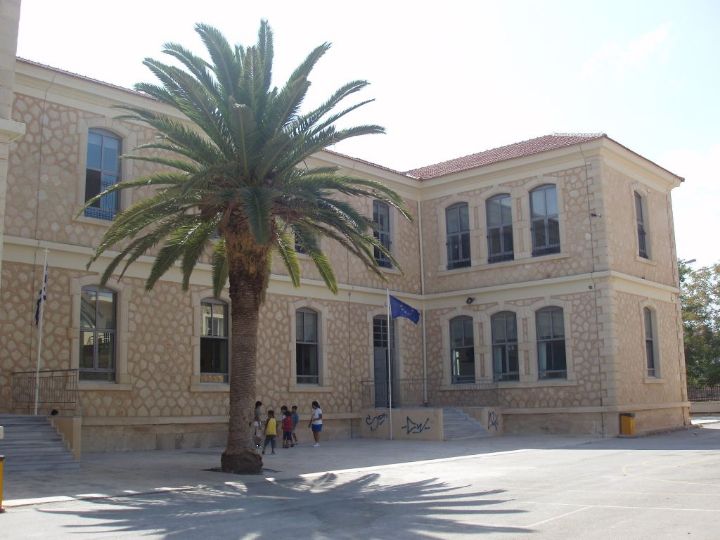Crete, Greece’s largest island, is a wonderful place to raise a family, offering a rich cultural heritage, beautiful landscapes, and a warm, welcoming community. For families moving to Crete, one of the most important aspects to consider is the education system. Understanding how the public education system works can help parents make informed decisions about their children’s schooling. This guide provides an overview of Crete’s public education system, helping parents navigate their options and understand what to expect.
Structure of the Public Education System
Greece’s public education system is structured into several stages, and this framework is consistent across the country, including Crete.
- Pre-primary Education (Nipiagogeio): This stage is for children aged 4 to 6. Attendance is mandatory for the last year (age 5-6). Pre-primary education focuses on social skills, basic numeracy, literacy, and creative activities. It prepares children for primary school.
- Primary Education (Dimotiko Scholeio): Primary school covers grades 1 to 6, for children aged 6 to 12. The curriculum includes Greek language, mathematics, environmental studies, physical education, art, and foreign languages (mainly English). Primary education emphasizes foundational knowledge and skills.
- Lower Secondary Education (Gymnasio): This stage includes grades 7 to 9, for children aged 12 to 15. The curriculum becomes more comprehensive, including subjects such as Greek literature, mathematics, science, history, physical education, and a second foreign language (often French or German).
- Upper Secondary Education (Lykeio): Upper secondary education is for students aged 15 to 18 and includes two types: General Lykeio and Vocational Lykeio (EPAL). General Lykeio offers a broad curriculum aimed at preparing students for university entrance exams. Vocational Lykeio focuses on technical and vocational education, providing practical skills and qualifications for various trades.
Enrollment Process
Enrolling your child in a Cretan public school involves several steps, and it’s important to be aware of the necessary documentation and timelines.
- Residence Registration: First, you must register your residence at the local municipal office (Dimos). This registration is required to prove your residency in the area where you plan to enroll your child.
- Documentation: Gather the necessary documents, which typically include the child’s birth certificate, vaccination records, proof of residence, and previous school records if transferring from another school. These documents need to be translated into Greek, and it’s advisable to have copies notarized.
- School Visit: Visit the local school to complete the enrollment process. Public schools in Crete are generally zoned, meaning your child will attend a school based on your residential address. It’s a good idea to visit the school in advance to meet with the administration, understand the facilities, and discuss any specific needs your child may have.
- Language Considerations: While Greek is the primary language of instruction, public schools also offer language support programs for non-Greek speaking students. These programs help children integrate into the school system by providing additional Greek language classes.
Curriculum and School Life
Crete’s public schools follow the national Greek curriculum, which is designed to provide a well-rounded education. Here are some key aspects of school life and the curriculum:
- Core Subjects: The core subjects include Greek language and literature, mathematics, science (biology, chemistry, physics), history, geography, physical education, and art. Foreign languages, primarily English, are introduced in primary school and expanded in secondary education.
- Extracurricular Activities: Many public schools offer extracurricular activities such as sports, music, drama, and clubs. Participation in these activities is encouraged as they enhance the overall educational experience and help in developing social and teamwork skills.
- School Hours and Calendar: The school year typically starts in September and ends in June, with holidays including Christmas, Easter, and summer breaks. School hours usually run from 8:00 AM to 2:00 PM, but this can vary slightly depending on the school level and specific institution.
Special Education and Support Services
Crete’s public education system includes provisions for students with special educational needs. Special education schools and inclusive education programs are available to support children with disabilities or learning difficulties.
- Special Education Schools: These schools are specifically designed to cater to children with more significant educational needs. They provide tailored programs and specialized staff to support the learning and development of these students.
- Inclusive Education: Many public schools have inclusive education programs, which integrate students with special needs into regular classrooms. Support services, such as resource teachers and individualized education plans (IEPs), are provided to ensure these students receive the appropriate assistance and accommodations.
Parental Involvement
Parental involvement is encouraged and valued in Cretan public schools. Parents are invited to participate in school activities, join parent-teacher associations (PTAs), and engage in their children’s educational journey.
- Communication with Teachers: Regular communication with teachers is essential to stay informed about your child’s progress and any areas needing attention. Parent-teacher meetings are held periodically, but parents can also request meetings if specific concerns arise.
- School Events and Activities: Schools often organize events, festivals, and cultural activities that parents are encouraged to attend. These events foster a sense of community and allow parents to engage with the school environment.
Conclusion
Navigating Crete’s public education system may seem daunting at first, but with the right information and resources, parents can ensure their children receive a quality education in a supportive and enriching environment. By understanding the structure, enrollment process, curriculum, and support services available, parents can make informed decisions that best meet their children’s needs. Crete offers a vibrant educational experience that combines academic learning with cultural and social development, making it an excellent place for children to grow and thrive.


